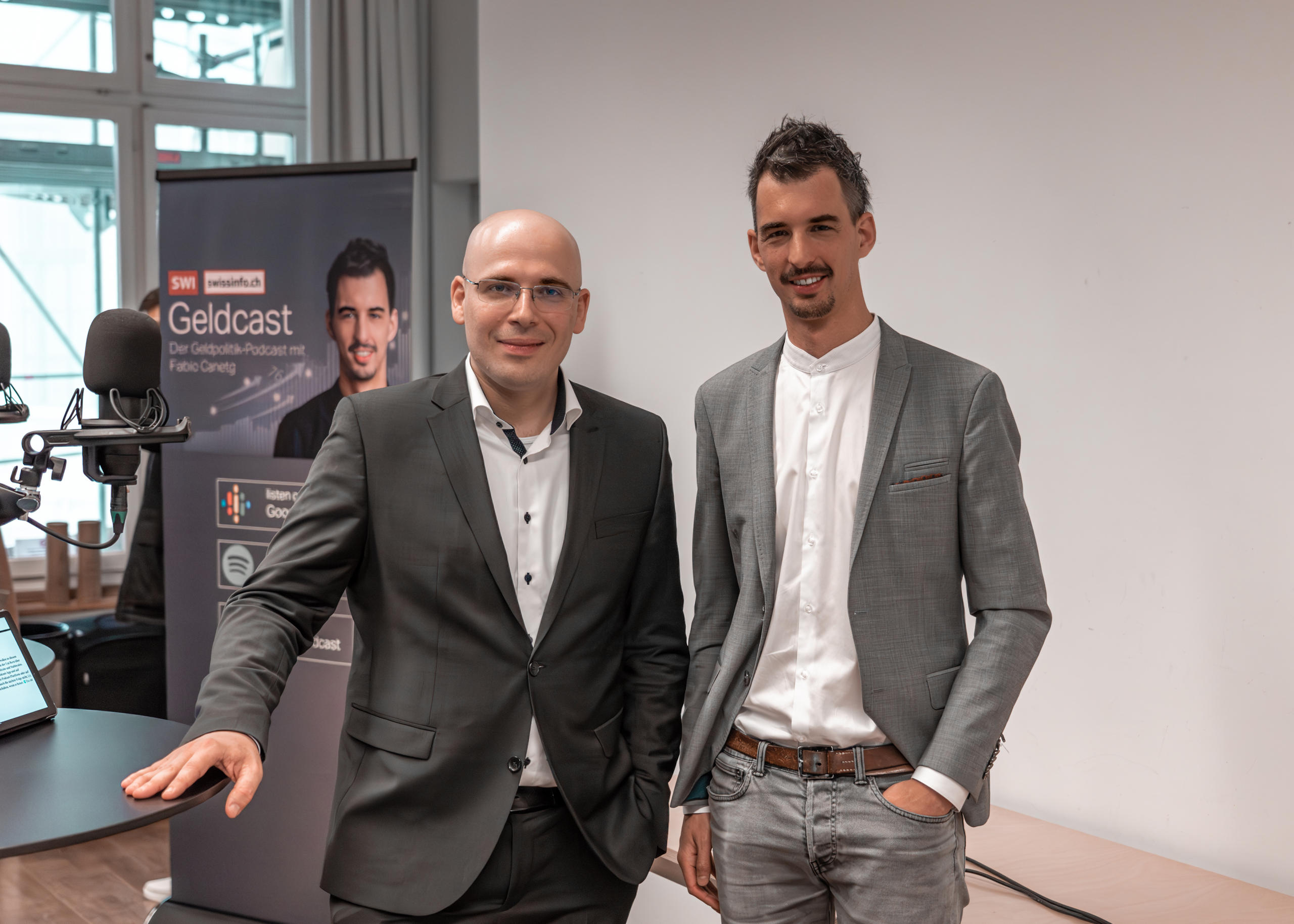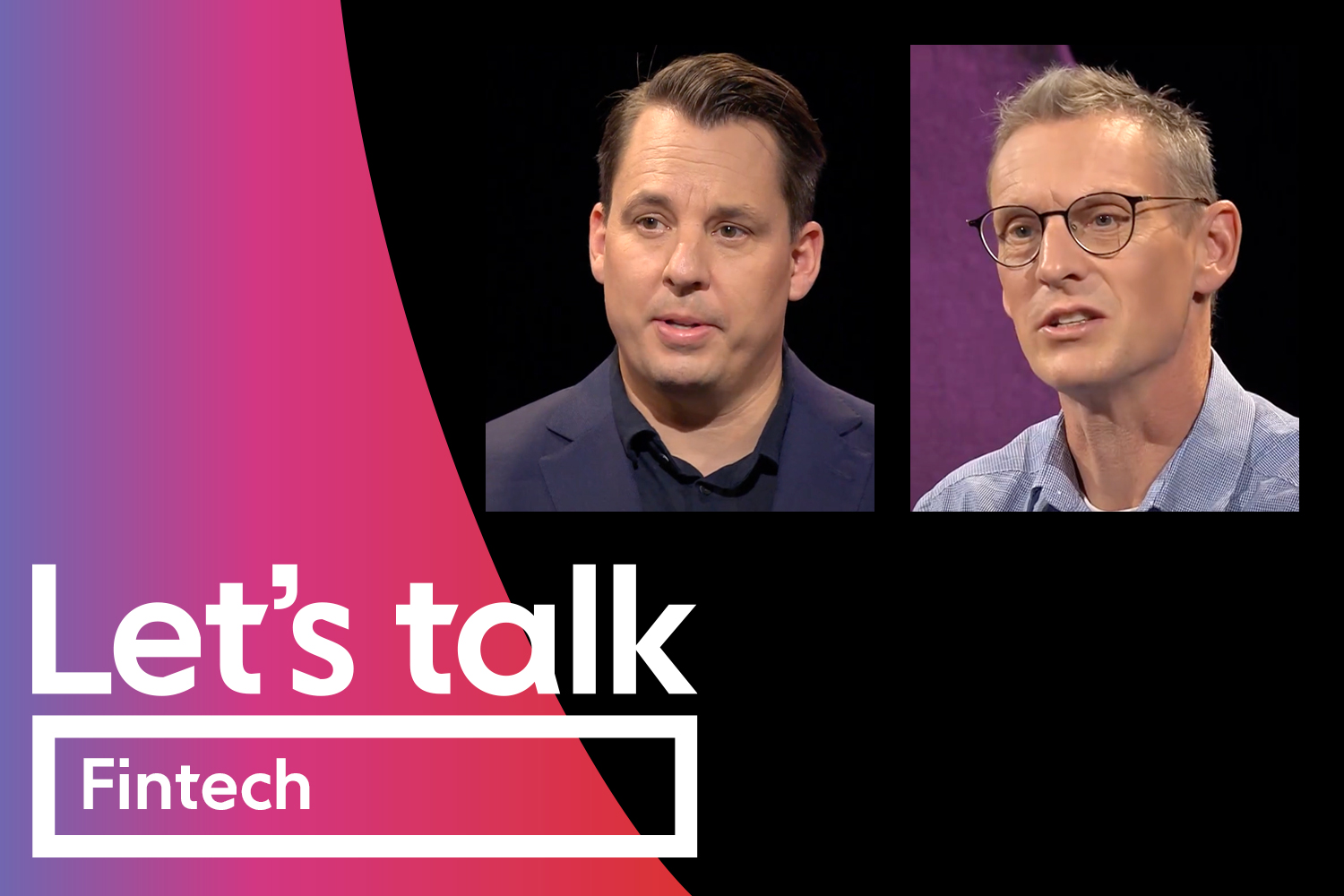The Swiss bitcoin expert with a global reputation

The international monetary and financial system is changing at breakneck speed. Cryptocurrencies, such as bitcoin, and blockchain technology pose huge challenges for banks. Fabian Schär, Professor of Blockchain, Bitcoin and Financial Market Technology at the University of Basel, has a front row seat to view these developments.
The shape of our monetary system is politically significant, Fabian Schär told SWI swissinfo’s Geldcast podcast. The professor of financial market infrastructure is one of the world’s most sought-after experts on the theme of cryptocurrencies and blockchain. He has been invited to speak at G20 meetings and most recently at the Indian Ministry of Economic Affairs.
+ Listen to Fabio Canetg’s regular take on hot economic topicsExternal link
“The atmosphere at such meetings is very impressive,” says Schär. The G20 is a loose association of world’s biggest economies, attended by the most powerful political actors. Proposed changes to international regulations are regularly discussed first at these meetings, mostly behind closed doors.
Fintech is a hot topic at the moment and it’s Schär’s speciality. Fintech includes everything to do with financial market infrastructure, such as the processing of payments.

More
Let’s Talk: the future of Crypto Nation Switzerland
Cryptocurrencies are important innovation drivers. Payments with bitcoin no longer need a central counterparty – money can be sent directly from buyer to seller. This is different with regular money transfers where payments go through a third party, often a bank.
“I was extremely sceptical”
So will bitcoin prevail as a new currency? Schär is very careful with his forecasts. “If everything develops as it was originally intended, then bitcoin could possibly become a store of value in future,” he says. But Schär doubts that bitcoin will become an established means of payment.
Nevertheless, he finds the innovations in cryptocurrencies very exciting. As a youth Schär developed an interest in computer science by spending a lot of time playing video games. Later, when studying economics, he started to delve into cryptocurrencies.
“I was extremely sceptical at first,” he says. “But the more I looked at cryptocurrencies, the more fascinated I became.” To Schär, bitcoin is an important innovation. “The system is incredibly well thought out.” But he also warns of risks: “Large fluctuations in value are a problem.” Schär recommends investing in self-education and a better understanding of cryptocurrencies before trading.
Schär puts his advice into practice in his role as a professor specializing in cryptocurrencies. He can exchange ideas with many interesting people from the political and private sectors.
His research covers the future role of the financial infrastructure and the changing role of intermediaries, such as banks. Much remains unclear, says Schär, but he can be clear on one thing: “These roles will evolve”.
The SWI swissinfo.ch Geldcast
Author Fabio Canetg completed his doctorate in monetary policy at the University of Bern and the Toulouse School of Economics. Today he is a lecturer at the University of Bern. As a journalist, he works for SRF Arena, Republik Magazin and SWI swissinfo.ch, where he hosts the monetary policy podcast “GeldcastExternal link”.

In compliance with the JTI standards
More: SWI swissinfo.ch certified by the Journalism Trust Initiative




You can find an overview of ongoing debates with our journalists here. Please join us!
If you want to start a conversation about a topic raised in this article or want to report factual errors, email us at english@swissinfo.ch.